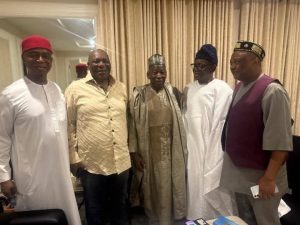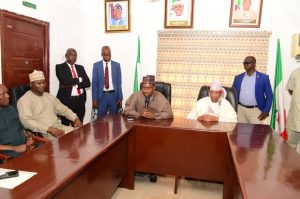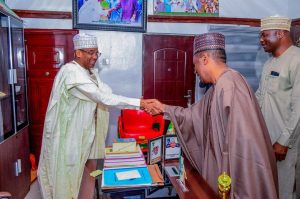News
Academic researches should solve local problems – TETFund

The Executive Secretary of the Tertiary Education Trust Fund, Sonny Echono, has called on academics in the country to focus on researches that would solve local problems.
This was as he urged the government to invest more in research, saying it is the way to the future of the country.
Echono made the call on Wednesday while delivering the keynote address at the 2024 Research and Innovation Fair of the Obafemi Awolowo University, Ile-Ife, Osun State.
He spoke on the theme: ‘The Rise of Research in Driving Sustainable Development’.
Represented by a former OAU Vice Chancellor, Prof. Michael Faborode, the TETFund boss said, “The academics need to work more on products and policies that can impact our lives. Research by itself is not enough. It is when research becomes innovation and products that it can impact the nation.
“Our research must be geared towards solving our local problems in a way that will be compatible with international expectations in terms of quality and meeting the global standard and we must be committed to this.”
Echono called on the government to prioritise investment in research and harness the potential of the youth.
He said, “Research is the only way for us to be able to make progress in this country, not food palliative or protest. Let us harness the huge potential and energy of the youths. Our youths should not use their knowledge for Internet fraud.
“The research fair is a good step because the concern is why our research has not been going out to impact society for sustainable development.
“We are not investing enough in research in Nigeria because we don’t seem to appreciate the value of research. We just believe things happen but development doesn’t happen like that. What we are enjoying today is a product of one research or the other.
“The government must realise that these things have to be funded. If you don’t fund research, you cannot get the products of research and you cannot continue to depend on other countries, otherwise, we will continue to be an import-oriented country and a consumer of innovation and technology and no country can move forward with that.”
In his goodwill message, the Osun State Commissioner for Education, Dipo Eluwole, said the state government would leverage research to boost food security in the state.
News
Senator Manu donates five operational vehicles to Taraba PDP(Photos)
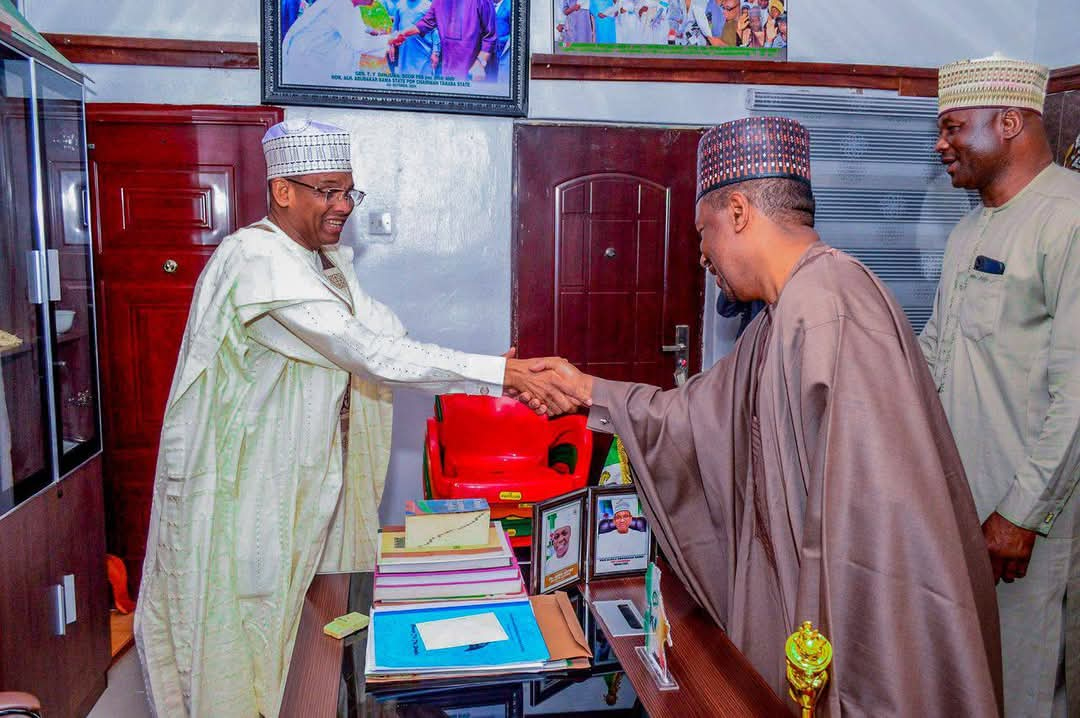
…hails emergence of Bawa as state chairman
The Senator representing Taraba Central Senatorial District Senator Manu Haruna on Sunday donated five operational vehicles to Taraba Peoples Democratic Party, PDP to enhance its operations.
Manu also seized the opportunity to congratulate the state Chairman, Hon Abubakar Bawa when he visited the secretariat in Jalingo last Sunday.
The former State Deputy Governor expressed his congratulations to Chairman Bawa and the state working committee for their election, emphasizing the importance of unity and progress within the party. He commended their commitment to strengthening the People’s Democratic Party (PDP) in Taraba State.
In a generous move to enhance the operational capacity of the party at the grassroots level, Senator Manu donated five vehicles — one for each Local Government Area (LGA) party chapter in Taraba Central.
This donation is intended to facilitate better coordination and outreach efforts within the party.
Senator Manu praised Hon. Abubakar Bawa for his dedicated efforts to elevate the PDP in the state, asserting that Taraba will always remain a stronghold for the party.
In response, State Party Chairman Alhaji Bawa expressed his heartfelt gratitude to Senator Manu for his thoughtful visit and generous donation. He acknowledged the impact of such contributions on the party’s progress and reemphasized the commitment of the PDP to serve the interests of the people in Taraba State.
News
Justice Minister, Fagbemi seeks support for govt’s national law reform initiative
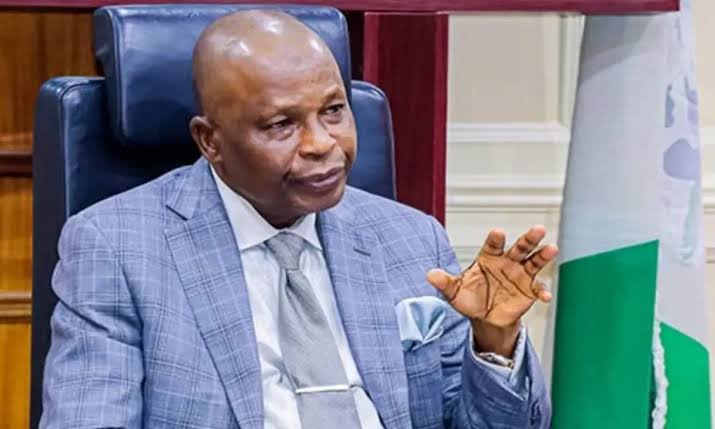
By Francesca Hangeior
The Attorney General of the Federation and Minister of Justice, AGF, Prince Lateef Fagbemi, SAN, has canvassed for greater efforts and commitments to the Federal Government’s aspirations to produce a workable legal framework for the country.
He charged the Committee put in place by the federal government to review, revise and consolidate the Laws of the Federation of Nigeria, LFN, to double the efforts and commitments to deliver on the mandate at the appointed time.
Fagbemi, a Senior Advocate of Nigeria, spoke on Monday in Abuja at the second retreat of the Committee put in place in October last year for the laws of the federation revision and reform.
The AGF while challenging the committee to be up and doing asked the members to remain united in purpose and steadfast in the resolve to produce a legal framework that is worthy of the nation’s aspirations.
He said the second retreat organized by the federal government was a strategic consolidation of the national law reform efforts and to provide an invaluable opportunity to come up with a better workable legal framework for the nation.
“Let me start by expressing gratitude to the Chairman, Co-Chairperson and members of the Committee for their selfless service and sacrifice, to ensure that this project is executed efficiently and effectively.
“The call to be part of this assignment is indeed a sacred that inevitably and positively affects the lives of individuals, government, businesses as well as citizens of this nation.
“The general purpose of law is to regulate human behavior by protecting lives and properties in society. The inauguration of the Committee on the 24th October, 2024 marked a historic milestone in our collective efforts to modernize, consolidate, and harmonize Nigeria’s body of federal statutes.
“The retreat successfully provides a clear framework for the structure and methodology of the revision exercise, oriented the 14 Working Groups tasked with reviewing specific legal subject areas, and fostered collaboration among key institutions and stakeholders on the project.
“Following the initial retreat, I wish to note that the Committee has recorded steady progress in its work.
“The Ministry has taken several measures to ensure that the assignment is delivered efficiently, including:training sessions for secretaries of the working groups to enhance documentation and coordination; technical meetings of the main committee and its various sub-committees; working sessions and deliberations among editors and reviewers; and ongoing technical collation of revised laws by the Secretariat.
“This second retreat is a strategic consolidation of our national law reform efforts and provides an invaluable opportunity to: review progress made since the first phase;
address any technical or structural challenges encountered during the collation process;
– Harmonize the output across working groups; and set the tone for the final stages of this important project.
“The next stage of the law review and consolidation process would include editing and proofreading the reviewed legislation, ahead of the final collation, production and printing of the laws of the federation.
“It is my conviction that these phases will be executed with even greater commitment by the Committee, with the support of stakeholders and development partners.
“I wish to commend the leadership of the LFN Committee, the Secretariat for its diligent coordination and day-to-day management as well as the Working Groups, Editors, and Reviewers, for their intellectual rigour and professionalism.
“Special gratitude to our development partners, particularly RoLAC, for standing firmly behind this national project.
“Let me urge all participants to use this retreat as a platform for robust engagement, peer learning, and practical collaboration.
“We must remain united in purpose and steadfast in our resolve to produce a legal framework that is worthy of our nation’s aspirations.
” I wish to express gratitude for your commitment to duty and I charge you to work in synergy and cooperation, in the overall interest of the nation”, the AGF said.
News
You must refund N300m, Rivers State tells NBA
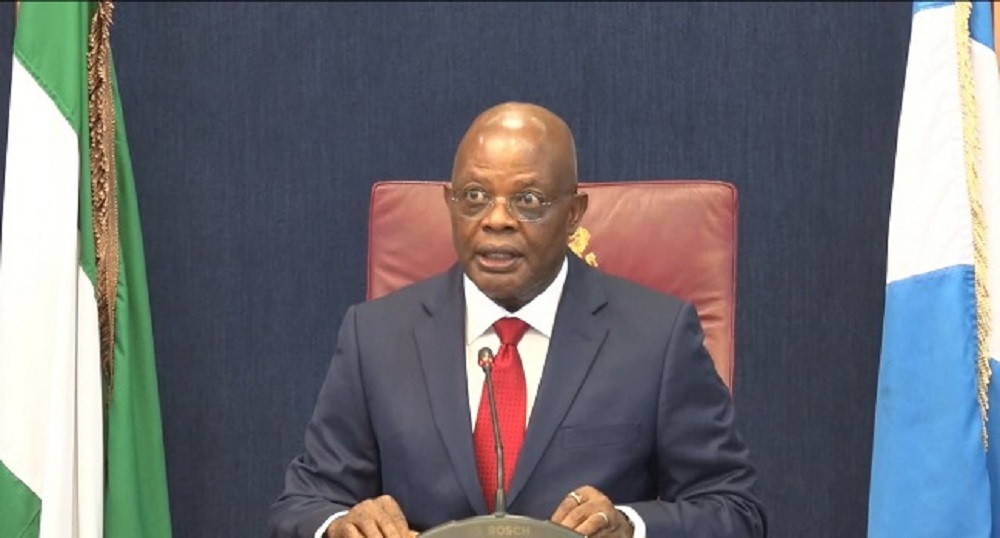
The Rivers State Sole Administrator, Vice Admiral Ibok-Ete Ibas (retd.), has replied to the Nigerian Bar Association regarding the reason for relocating its Annual General Conference from Port Harcourt to Enugu State.
Ibas faulted the reason cited by the NBA, describing it as misleading and uncharitable.
The Sole Administrator stated this in a statement issued in Port Harcourt on Monday by his media aide, Hector Igbikiowubo, and sent to newsmen.
He said while the NBA reserves the right to choose a venue for its conference, the association had yet to address the issue of the refund of the hosting rights paid by the state government for the conference.
The statement partly reads, “While we respect the NBA’s right to choose its conference venues, we find it curious that the association—despite its “principled position”— didn’t address the refund of the N300 million already paid by the Rivers State Government for the hosting rights of the 2025 conference.
“If the NBA truly stands on principle, it should demonstrate the same integrity by promptly returning these funds rather than benefiting from a state it now publicly discredits.”
It added, “The attention of the Rivers State Government has been drawn to the Nigeria Bar Association’s announcement dated 10th April 2025, relocating its 2025 Annual General Conference from Port Harcourt to Enugu.
The statement partly reads, “While we respect the NBA’s right to choose its conference venues, we find it curious that the association—despite its “principled position”— didn’t address the refund of the N300 million already paid by the Rivers State Government for the hosting rights of the 2025 conference.
“If the NBA truly stands on principle, it should demonstrate the same integrity by promptly returning these funds rather than benefiting from a state it now publicly discredits.”
It added, “The attention of the Rivers State Government has been drawn to the Nigeria Bar Association’s announcement dated 10th April 2025, relocating its 2025 Annual General Conference from Port Harcourt to Enugu.
-

 News18 hours ago
News18 hours agoAutonomy: 774 LGs challenge FG, states in court Tuesday
-

 News11 hours ago
News11 hours agoRivers women rally in support of state of emergency
-
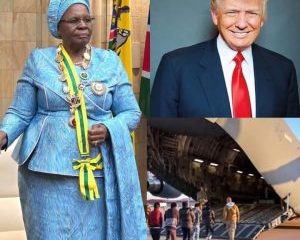
 News11 hours ago
News11 hours agoJust in: Namibia Moves to Deport Over 500 Americans in Bold Visa Policy Shift
-

 News6 hours ago
News6 hours agoYou must refund N300m, Rivers State tells NBA
-
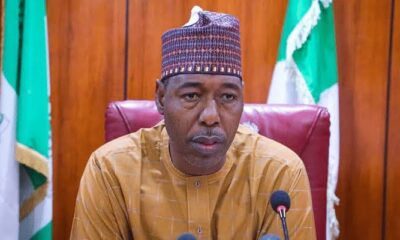
 News18 hours ago
News18 hours agoZulum orders arrest, offers house, scholarship to abused boy in viral video
-

 Politics9 hours ago
Politics9 hours agoBwala accuses Senator Ndume of plans to defect from APC
-
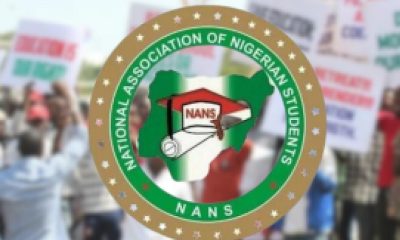
 News19 hours ago
News19 hours agoNANS criticize NASS over proposed bill to fine, jail non voters
-

 News18 hours ago
News18 hours agoOluwo raises alarm over brewing Osun-Oyo border dispute


